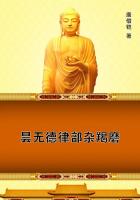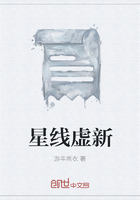The most indifferent artists were permitted to have the honour of painting the Queen. A full-length portrait, representing her in all the pomp of royalty, was exhibited in the gallery of Versailles. This picture, which was intended for the Court of Vienna, was executed by a man who does not deserve even to be named, and disgusted all people of taste. It seemed as if this art had, in France, retrograded several centuries.
The Queen had not that enlightened judgment, or even that mere taste, which enables princes to foster and protect great talents. She confessed frankly that she saw no merit in any portrait beyond the likeness. When she went to the Louvre, she would run hastily over all the little "genre" pictures, and come out, as she acknowledged, without having once raised her eyes to the grand compositions.
There is no good portrait of the Queen, save that by Werthmuller, chief painter to the King of Sweden, which was sent to Stockholm, and that by Madame Lebrun, which was saved from the revolutionary fury by the commissioners for the care of the furniture at Versailles.
[A sketch of very great interest made when the Queen was in the Temple and discovered many years afterwards there, recently reproduced in the memoirs of the Marquise de Tourzel (Paris, Plon), is the last authentic portrait of the unhappy Queen. See also the catalogue of portraits made by Lord Ronald Gower.]
The composition of the latter picture resembles that of Henriette of France, the wife of the unfortunate Charles I., painted by Vandyke. Like Marie Antoinette, she is seated, surrounded by her children, and that resemblance adds to the melancholy interest raised by this beautiful production.
While admitting that the Queen gave no direct encouragement to any art but that of music, I should be wrong to pass over in silence the patronage conferred by her and the Princes, brothers of the King, on the art of printing.
[In 1790 the King gave a proof of his particular good-will to the bookselling trade. A company consisting of the first Parisian booksellers, being on the eve of stopping payment, succeeded in laying before the King a statement of their distressed situation.
The monarch was affected by it; he took from the civil list the sum of which the society stood in immediate need, and became security for the repayment of the remainder of the 1,200,000 1ivres, which they wanted to borrow, and for the repayment of which he fixed no particular time.]
To Marie Antoinette we are indebted for a splendid quarto edition of the works of Metastasio; to Monsieur, the King's brother, for a quarto Tasso, embellished with engravings after Cochin; and to the Comte d'Artois for a small collection of select works, which is considered one of the chef d'oeuvres of the press of the celebrated Didot.
In 1775, on the death of the Marechal du Muy, the ascendency obtained by the sect of innovators occasioned M. de Saint-Germain to be recalled to Court and made Minister of War. His first care was the destruction of the King's military household establishment, an imposing and effectual rampart round the sovereign power.
When Chancellor Maupeou obtained from Louis XV. the destruction of the Parliament and the exile of all the ancient magistrates, the Mousquetaires were charged with the execution of the commission for this purpose; and at the stroke of midnight, the presidents and members were all arrested, each by two Mousquetaires. In the spring of 1775 a popular insurrection had taken place in consequence of the high price of bread.
M. Turgot's new regulation, which permitted unlimited trade in corn, was either its cause or the pretext for it; and the King's household troops again rendered the greatest services to public tranquillity.
I have never be enable to discover the true cause of the support given to M. de Saint-Germain's policy by the Queen, unless in the marked favour shown to the captains and officers of the Body Guards, who by this reduction became the only soldiers of their rank entrusted with the safety of the sovereign; or else in the Queen's strong prejudice against the Duc d'Aiguillon, then commander of the light-horse. M. de Saint-
Germain, however, retained fifty gens d'armes and fifty light-horse to form a royal escort on state occasions; but in 1787 the King reduced both these military bodies. The Queen then said with satisfaction that at last she should see no more red coats in the gallery of Versailles.
From 1775 to 1781 were the gayest years of the Queen's life. In the little journeys to Choisy, performances frequently took place at the theatre twice in one day: grand opera and French or Italian comedy at the usual hour; and at eleven at night they returned to the theatre for parodies in which the best actors of the Opera presented themselves in whimsical parts and costumes. The celebrated dancer Guimard always took the leading characters in the latter performance; she danced better than she acted; her extreme leanness, and her weak, hoarse voice added to the burlesque in the parodied characters of Ernelinde and Iphigenie.
The most magnificent fete ever given to the Queen was one prepared for her by Monsieur, the King's brother, at Brunoy. That Prince did me the honour to admit me, and I followed her Majesty into the gardens, where she found in the first copse knights in full armour asleep at the foot of trees, on which hung their spears and shields. The absence of the beauties who had incited the nephews of Charlemagne and the gallants of that period to lofty deeds was supposed to occasion this lethargic slumber. But when the Queen appeared at the entrance of the copse they were on foot in an instant, and melodious voices announced their eagerness to display their valour. They then hastened into a vast arena, magnificently decorated in the exact style of the ancient tournaments.















